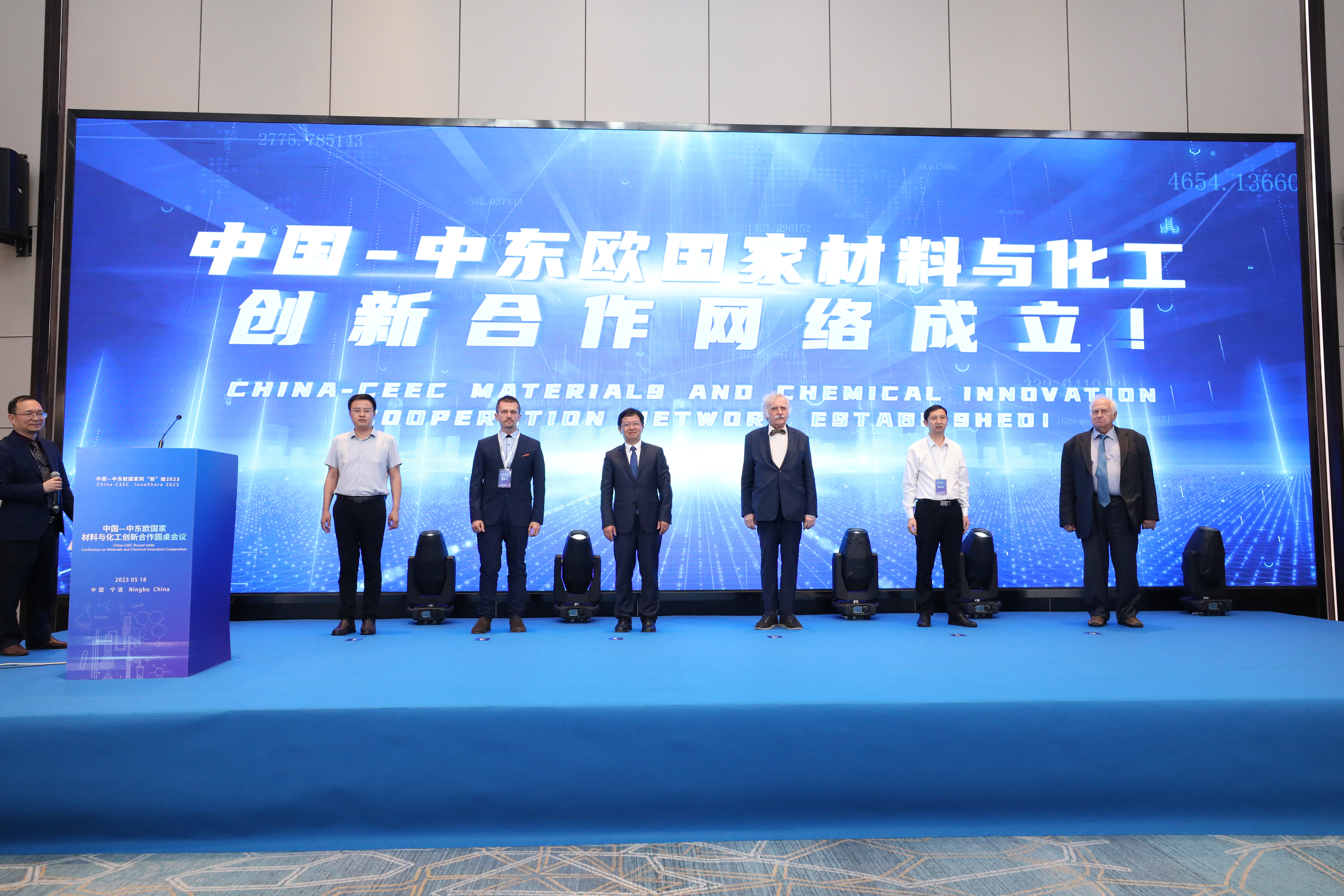China-CEEC Materials & Chemical Innovation Cooperation Network Established
By?ZHONG?Jianli
To promote science, technology and innovation (STI) exchanges between China and Central and Eastern European countries (CEECs), the China-CEEC Materials and Chemical Innovation Cooperation Network was established during a roundtable conference held in Ningbo, east China's Zhejiang province, on May 18.
"Thanks to the joint efforts of the sci-tech communities of China and CEECs, the areas of cooperation among relevant parties keep expanding over the decade. Fruitful results have been achieved in people-to-people exchanges, research platform building, joint R&D, enterprise innovation, as well as the transfer and application of STI achievements," said Gao Xiang, director general of China Science and Technology Exchange Center (CSTEC) when addressing the China-CEEC?Round-table Conference on Materials and Chemical Innovation Cooperation.
Ma Jianjiang, deputy director of the General Office of Ningbo Municipal People's Government, said the materials and chemical industry is one of the key areas of cooperation between China and CEECs. Boasting strong advantages in such specialized fields as new chemical materials, new metal materials, and magnetic materials, Ningbo will facilitate more excellent enterprises, research institutions, experts and scholars to achieve win-win cooperation in the city.
During the conference, the China-CEEC Materials and Chemical Innovation Cooperation Network was launched, with the aim of further promoting information sharing and international cooperation in the field of advanced materials and chemical engineering.

The?launch?ceremony?of?the?China-CEEC Materials and Chemical Innovation Cooperation Network.?(PHOTO:?Ningbo?Science and Technology Bureau)
As this year marks the beginning of the second decade of STI cooperation between China and CEECs, the Network will be committed to jointly building innovation cooperation platforms for China and CEECs, and carry out various kinds of academic or research cooperation and exchanges, including those for young scientists.
Neli Stoyanova Koseva, scientific secretary-general and first assistant to president of Bulgarian Academy of Sciences, said in Bulgaria they "highly acknowledge the support of China to promote and encourage international cooperation among scientists from all over the world."
She added that innovations unlocked by materials and chemical research could contribute to achieving the United Nations Sustainable Development Goals (SDGs), such as zero hunger, good health, clean water and clean energy.
Janusz Lipkowski, full member and former vice president of Polish Academy of Sciences, highlighted the importance of innovation in realizing a country's development strategies, looking forward to more pragmatic cooperation between China and CEECs.
During the dialogue session, representatives of institutions from different countries introduced their latest achievements in materials and chemical development, shared prospects for future international sci-tech cooperation, and exchanged views on how to build joint research platforms and carry out more exchanges between researchers.
As the first event of the China-CEEC InnoShare 2023, the roundtable conference is hosted by CSTEC and Ningbo Science and Technology Bureau, and organized by Ningbo University of Technology and China-CEEC Innovation Cooperation Research Center.






